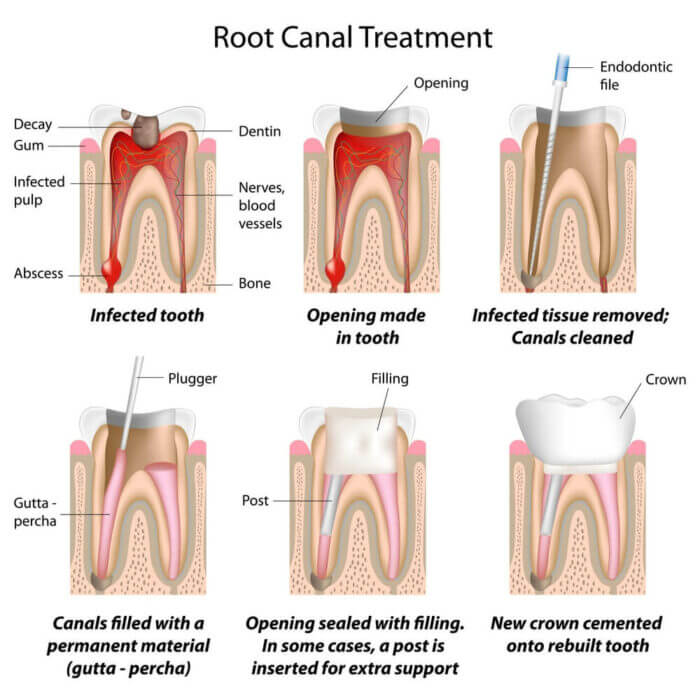
Diagnosis
The need for a root canal can become evident in many ways. Ranging from a finding on a dental radiograph/xray where the patient reports zero symptoms, to temperature or bite sensitivity to extreme pain and swelling. For this reason routine radiographs/xrays have become the standard of care in an effort to detect problems before they present as extreme pain or swelling. Two basic categories exist that require root canal, necrotic or dead tooth, and irreversible pulpitis or live and inflamed hypersensitive tooth. Both of these conditions can be usually be remedied by root canal treatment.
If you are experiencing localized temperature sensitivities, bite sensitivity or swelling it is important that you consult with us so we can evaluate the area and determine whether treatment is necessary to avoid more extreme consequences.
Treatment
If it is determined that a root canal is needed, the next step is to treat. Like most other dental procedures, anesthetizing or numbing the area is indicated. Once profoundly numbed the area inside the tooth is accessed, allowing us to clean out the either dead and infected or irritated and inflamed tooth pulp.
All of this treatment is performed with the help of a rubber dam. A rubber dam is an apparatus that allows us to isolate the tooth that needs to be worked on, effectively keeping it clear of your saliva and oral bacteria, tongue and cheek etc. This insures that the tooth is kept as clean as possible and also eliminates any of the cleaning agents used on the tooth from entering your mouth.
Every tooth is different based on where it is in the mouth as well as from patient to patient. Teeth can have one to four canals and sometimes more. Canal spaces are searched for, identified and then each is cleaned and filled.
The inner area of the tooth is thoroughly cleaned with a variety of antiseptics and bleaches to disinfect and clean all remnants leaving a clean sanitary surface that is then filled with a combination of sealing cements and natural rubber called gutta percha.
Many root canals can be treated by us, however, sometimes it can be necessary to enlist the help of an Endodontist or root canal specialist.
